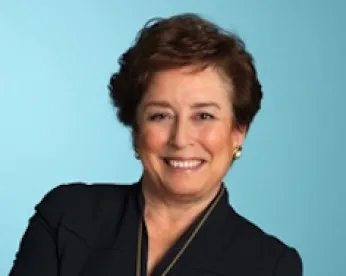Trends and Analysis
-
We have identified 20 health care-related qui tam cases unsealed in July 2013. About a quarter of those were filed in 2013.
-
Among the cases unsealed in July, the government has declined to intervene in about 65% of the cases in which the unsealed filings included the government’s decision on intervention.
-
Cases from a variety of federal districts were unsealed this month, but, of note, declinations occurred in those known for active government pursuit of false claims cases.
-
Subject matter of claims:
-
One-fourth of the unsealed cases identified in July involved both state and federal claims.
-
Claims for relief under state or federal anti-whistleblower retaliation provisions appeared in
one-fourth of the unsealed cases reviewed from July. -
Cases involving emergency department (ED) issues, such as unnecessary inpatient admissions or upcoding of hospitalist evaluation & management (E&M) claims, appear to be growing in number and are being brought against very large hospital corporations or hospitalist contracting entities. Three of July’s unsealed qui tam cases involved such claims. One of these cases settled for $14.5 million, a significant amount.
-
Prompt unsealing of cases from calendar year 2013 suggests that the Department of Justice may be more confident about declining cases earlier on in the process, even in “hot” enforcement areas, such as home health, durable medical equipment (DME), and mental health outpatient services.
-
-
Identity of Relators:
-
All of the relators were former employees of health care organizations or employees of independent contractors to health care organizations.
-
Auditors are becoming more commonplace as relators. Their ability to access organizational data directly because of their job duties may potentially strengthen their claims.
-
Selected Cases Unsealed in July 2013
Nelson v. Alcon Laboratories, No. 3:12-cv-03738-M (N.D. Tex.)
Complaint filed: September 14, 2012
Complaint unsealed: July 16, 2013
Intervention status: Declined
Claims: False claims to Medicare, Medicaid, TRICARE and federal defense procurement programs in violation of the Civil False Claims Act (FCA), 31 U.S.C. § 3729 et seq.
Name of Relators: Michael Nelson and Steve Gonzales
Defendant’s Business: Pharmaceutical manufacturer
Relators’ Relationship to Defendant: Former employees
Relators’ counsel: Bell, Nunnally & Martin, LLP
Summary of case: Alcon Laboratories allegedly failed to adhere to U.S. Food and Drug Administration (FDA) regulations in manufacturing, packaging, and delivering non-prescription and prescription eye care products sold to the U.S. government under the Medicaid, Medicare, TRICARE, and other insurance programs for active and retired military personnel as well as federal civilian employees and dependents. Additionally, Alcon provided these drugs through procurement contracts with the U.S. Department of Defense.
Current Status: The U.S. declined to intervene in the case; the relators may proceed on their own.
Reasons to Watch: Similar to United States ex rel. Eckard v. GlaxoSmithKline and SB Pharmco Puerto Rico, (D. Mass.) a settled case from 2010, this case focuses on false certification of compliance with FDA laws and regulations regarding manufacturing practices and product quality as a basis for the FCA allegations. In contrast, however, the Eckard case involved both civil and criminal allegations and specific claims that the drugs, as a result of noncompliance with FDA laws and regulations, were adulterated and misbranded under the Food, Drug, and Cosmetic Act (FDCA). The Eckard resolution included a guilty plea from the subsidiary of the defendant, a civil settlement of $600 million, and a criminal fine of $150 million, and the facility where the local manufacturer produced the drugs ultimately closed. The government’s decision not to intervene in the Nelson qui tam case may indicate a reluctance, at least in Texas, to allocate governmental investigatory resources to cases with less egregious violations than those involved in Eckard.
United States v. Diagnostic Physicians Group, No. 1:11-cv-00364-KD-B (S.D. Ala.)
Complaint filed: July 8, 2011
Complaint unsealed: July 8, 2013
Intervention status: Intervened
Claims: False claims to Medicare, Medicaid, and TRICARE in violation of the Civil False Claims Act, 31 U.S.C. § 3729 et seq., with some premised on false certification of compliance with the Anti-Kickback Statute (AKS) and the Physician Self-Referral Law (Stark Law). The complaint also seeks relief for retaliation claims under the FCA.
Name of Relator: Christian Heesch
Defendants’ Businesses: Defendants are, respectively, a physician group practice, a non-profit health care practice management company, a subsidiary non-profit holding company, and the latter’s subsidiary professional corporation of health care providers
Relator’s Relationship to Defendant: The relator was a cardiologist with the Diagnostic Physicians Group from 2003 until the group fired him in 2011.
Relator’s counsel: Coumanis & York, P.C.
Summary of case: The complaint’s numerous allegations include claims that: (1) the group’s physicians received proceeds from “technology fees” based on the amount of referrals physicians made to the related clinics (the “Clinic Defendants”) in violation of the Stark Law (including referrals for medically unnecessary testing); (2) the group’s physicians were compensated based on a percentage of the Clinic Defendants’ collections from office/property leases in violation of the AKS and the Stark Law; and (3) the group’s physicians’ employment agreements did not include all of the types of compensation that they received, which resulted in the physicians receiving higher payments than contemplated in the agreements in violation of the Stark Law.
Current Status: The government elected to intervene on July 8, 2013.
Reasons to Watch: The intricacies of the financial relationships, as well as the substantial dollar value of the claims submitted to federal health care programs ($521 million) generating over $18.6 million in reimbursements subject to Stark and AKS penalties, may present particularly interesting issues as the government proceeds with its case.
United States ex rel. Davis v. Amgen, No. 2:12-cv-00570-R-MRW (C.D. Cal.)
Complaint filed: January 20, 2012
Complaint unsealed: July 9, 2013
Intervention status: Partial intervention/partial declination
Claims: Conspiracy to submit false claims to Medicare, TRICARE, the Federal Employees Health Benefits Program, and the Department of Defense in violation of the Civil False Claims Act, 31 U.S.C. § 3729 et seq. based on violations of the AKS.
Name of Relators: William Davis (Oncology Business Unit Sales Planning Director), Spencer Miller (Oncology Marketing Senior Manager)
Defendants’ Businesses: Pharmaceutical manufacturer and related businesses
Relators’ Relationship to Defendants: Davis was Amgen’s Oncology Business Unit Sales Planning Director, and Spencer Miller was an Oncology Marketing Senior Manager at the company.
Relators’ counsel: Miller Miller Menthe, LLP
Summary of case: The relators accused Amgen of providing kickbacks to physicians who prescribed Amgen’s oncology drugs. The increased number of prescriptions allegedly inflated the Best Price and Average Selling Price of the drugs, which caused Medicare, the Veterans’ Administration, the Public Health Service, and the Department of Defense to overpay for Amgen drug prescriptions. Prosecutors also claim that Amgen used data-purchase agreements, known within the company as “Deep Dive” contracts, to provide financial incentives to oncologists and urologists to prescribe Xgeva.
Current Status: The parties settled on July 8, 2013 for over $15 million (full amount not disclosed in the press), and the court granted a joint stipulation to dismiss the case on July 12, 2013. The relators received $2.75 million from the proceeds as part of the settlement.
Reasons to Watch: The government only intervened in part. Even though the Settlement Agreement is not publicly available for a comparative review of the differences between the Covered Conduct and the allegations in the initial Complaint, the government’s press release shows that it focused on the claims related to a single drug, Xgeva. Additionally, this case demonstrates the government’s dogged prosecution of multiple aspects of pharmaceutical companies’ sales and marketing activities, as evidenced by Amgen’s$24.9 million settlement with the government in April 2013 that resolved allegations that the company had paid kickbacks to long-term care pharmacy providers if they implemented “therapeutic interchange” programs designed to switch Medicare and Medicaid beneficiaries from a competitor drug to Aranesp, another Amgen oncology drug.
United States ex rel. Craig Thomas v. Sound Inpatient Physicians, Inc., No. 3:09-cv-05301-RBL (W.D. Wash.)
Complaint filed: May 21, 2009
Complaint unsealed: July 1, 2013
Intervention status: Intervened
Claims: False claims to Medicare in violation of the Civil False Claims Act, 31 U.S.C. § 3729 et seq.
Name of Relator: Craig Thomas
Defendant’s Business: The defendant is a corporation that employs more than 700 hospitalists and post-acute physicians who provide services at 70 hospitals and a growing network of post-acute facilities in 22 states.
Relator’s Relationship to Defendant: Regional manager for the Southwest region of the United States.
Relator’s counsel: James Ratner, solo practitioner, and Hagens Berman Sobol Shapiro, LLP
Summary of case: According to the government’s press release, between 2004 and 2012, Sound Physicians allegedly submitted inflated claims to federal health care programs on behalf of its hospitalist employees for higher and more expensive levels of service than were documented by hospitalists in patient medical records.
Current Status: The case was settled on July 3, 2013 for $14.5 million. The relator received $2.68 million.
Reasons to Watch: This case is similar to other cases involving ED-based claims (e.g., medical necessity of inpatient admissions, upcoding of evaluation & management services within hospitals, etc.). The defendant’s CEO was named in the complaint, but apparently was not subject to individual liability as a responsible corporate official. Finally, neither the complaint nor the settlement named the hospitals as potential defendant conspirators in the scheme.
United States ex rel. Kevin Ryan v. TranS1, Inc., No. 1:11-cv-01041-MJG (D. Md.)
Complaint filed: April 21, 2011
Complaint unsealed: July 1, 2013
Intervention status: Intervened (June 28, 2013)
Claims: False claims to Medicare in violation of the Civil False Claims Act, 31 U.S.C. § 3729 et seq., partially based on violations of the AKS.
Name of Relator: Kevin Ryan
Defendant’s Business: Medical device manufacturer that promoted its AxiaLIF system as an alternative to invasive spine fusion surgeries.
Relator’s Relationship to Defendant: Former employee sales manager.
Relator’s counsel: Joseph, Greenwald & Laake, PA
Summary of case: The complaint alleged that TranS1: (1) promoted the sale and use of its AxiaLIF System for uses not approved or cleared by the FDA; (2) allegedly counseled physicians and hospitals to bill for the AxiaLIF System as if it were a method to perform more invasive spine fusion surgeries; and (3) knowingly paid unlawful remuneration to certain physicians for participating in speaker programs and consultant meetings intended to induce them to use TranS1 products.
Current Status: The case was settled on July 3, 2013 for $6 million. The relator will receive $1.02 million from the proceeds as his share.
Reasons to Watch: This is another recently unsealed case partially premised on alleged FDA-based violations (see Alcon, above) and improper sales and marketing practices (see Amgen, above), which demonstrates multi-agency cooperation on FCA prosecutions. Unlike Amgen and other pharmaceutical cases, this case concerns medical devices, signifying a widening avenue of enforcement. Based on publicly available documents, the government apparently did not pursue individual physicians as a result of these allegations.




 />i
/>i


